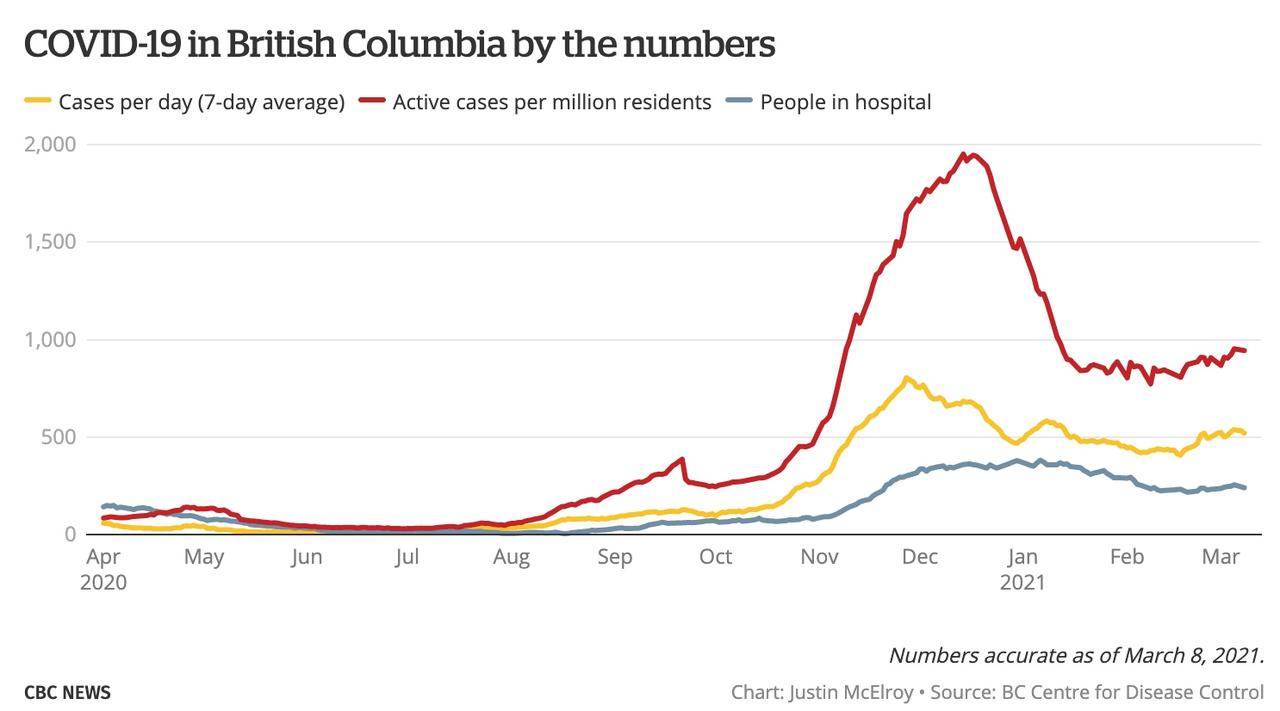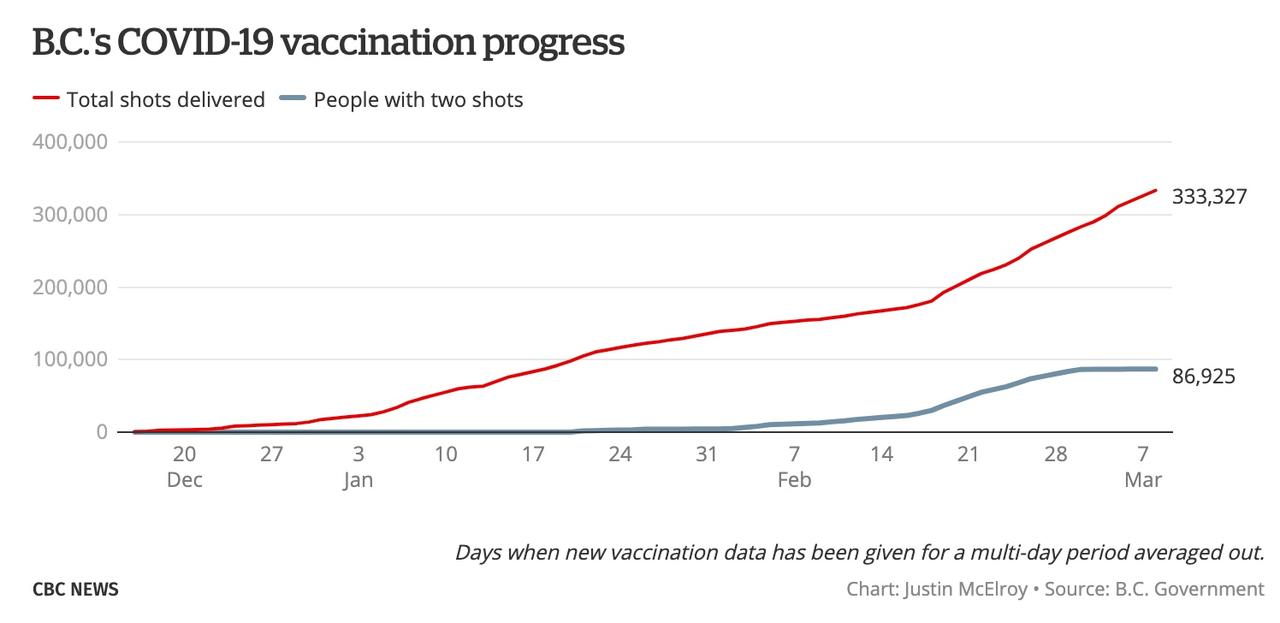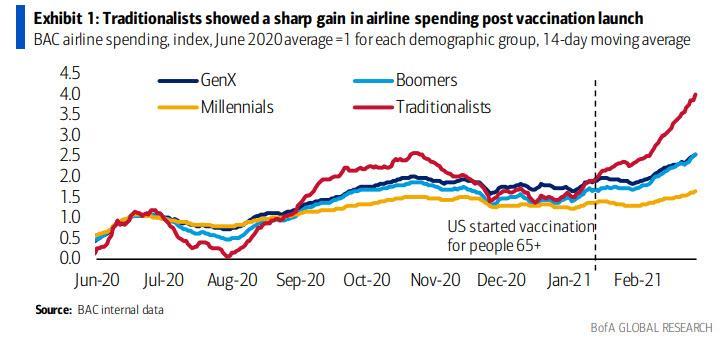COVID Outbreak Confirmed at Nursing Home Despite Staff, Patients Being Vaccinated
As new COVID cases tumble across North America, sleepy British Columbia has just reported a new outbreak of the virus at a nursing home in the province where both staff members and patients had already been vaccinated.
According to the CBC, a new outbreak of COVID-19 has been declared at the Cottonwoods Care Center, located in the Interior Health region. BC’s provincial health officer first acknowledged the outbreak yesterday.
During a live news conference about the outbreak, Provincial Health Officer Dr. Bonnie Henry emphasized being vaccinated doesn’t mean transmission will be stopped and that precautions must remain in place for seniors and care homes. Dr. Henry said two staff members and 10 residents have tested positive at the Cottonwoods facility, which is a long-term care home with 221 publicly-funded beds. Henry said that all staff and residents at the home were offered immunizations and that there was very high uptake of the vaccine. She said some of the cases were among people who had received two doses of the vaccine.
“You can have transmission even when people are fully vaccinated,” she said. “The illness seems to be milder and doesn’t transmit as much [and we] won’t see rapid explosive outbreaks.”
Despite the outbreak, Dr. Henry said the province will offer new guidance by the end of month that will allow for increased visitation at long-term care homes like this.

Source: CBC

Source: CBC
Increasingly, people around the world are questioning how and why outbreaks can still occur among populations with high vaccination rates. In Israel, where a spate of post-vaccination reactions and deaths were documented and reported as the tiny Mediterranean Country scrambled to be the world leader, the Jerusalem Post has just published an explainer piece entitled “Why would someone fully vaccinated still catch corona?”
In the article, the writer identifies four reasons why an individual might test positive and/or be severely sickened.
Here’s more from the JPost.
There are several reasons why one might develop COVID-19 after vaccination, according to Prof. Jonathan Gershoni of the Shmunis School of Biomedicine and Cancer Research at Tel Aviv University.
The first reason is that the clinical trials for Moderna and Pfizer indicate that the vaccine is 95% efficient in protecting against the disease meaning, according to Johns Hopkins University, that about one out of 20 vaccinated people may not be protected and could still get sick.
The efficacy of protection is calculated based on the number of people who were actually infected in the clinical trials, not on the total number of those that were vaccinated.
It should also be noted that 95% efficacy does not mean that 5% of the people in the Pfizer clinical trial caught coronavirus. According to an article published by Live Science, the percentage was much less – around 0.04%.
The second reason is variants.
The Pfizer and Moderna vaccines were developed based on the original coronavirus strain as discovered and genetically sequenced in Wuhan, China. Since then, the virus has replicated and mutated into thousands of different variants, some of which might render the vaccine less effective.
“We know in Israel that now, the majority of infections are from the UK variant,” Gershoni said.
While these vaccines have already proven to be highly effective against the UK variant, they are not as effective against the South African strain, Gershoni said. Furthermore, he added, there could be other variants that are even more vaccine resistant.
The third reason is that immunity is “a numbers game,” the scientist explained.
The disease – or the vaccine – causes our bodies to develop antibodies against the virus. But if someone has an extremely high viral load and sheds that potent load, it is possible that this large amount of virus could break through the existing protection and infect the person. In this case though, it would likely only cause a mild disease.
The fourth and final reason, each person is unique and has her or his own molecular immunological makeup.
“We know some people have a tendency to be very robust and stand up to infections, and other people can be a bit more sensitive,” Gershoni said. “When talking in terms of vaccinating five million people in Israel, you are seeing the full spectrum of people with various levels of immune competence.”
But he cautioned that when we talk about “breakthrough infections,” sometimes people were infected before they got their second dose or even their first.
As more older Americans receive the vaccine (the US is now doling out more than 2MM doses per day of the three approved jabs from Moderna, Pfizer-BioNTech and JNJ), it appears many are already booking trips to see family and friends, or take a brief vacation, after being essentially stuck in their own homes for a year. A recent BofA survey found that older Americans’ spending on airline tickets has surged 4x since June.

Although the CDC yesterday eased restrictions on certain domestic activities for people who have been “fully vaccinated”, any form of travel is still against the federal guidelines, especially if patients are deemed high risk. Still, as worries about the mutations intensify, what might this new trend portend?

No comments:
Post a Comment
Leave your thoughts & comments